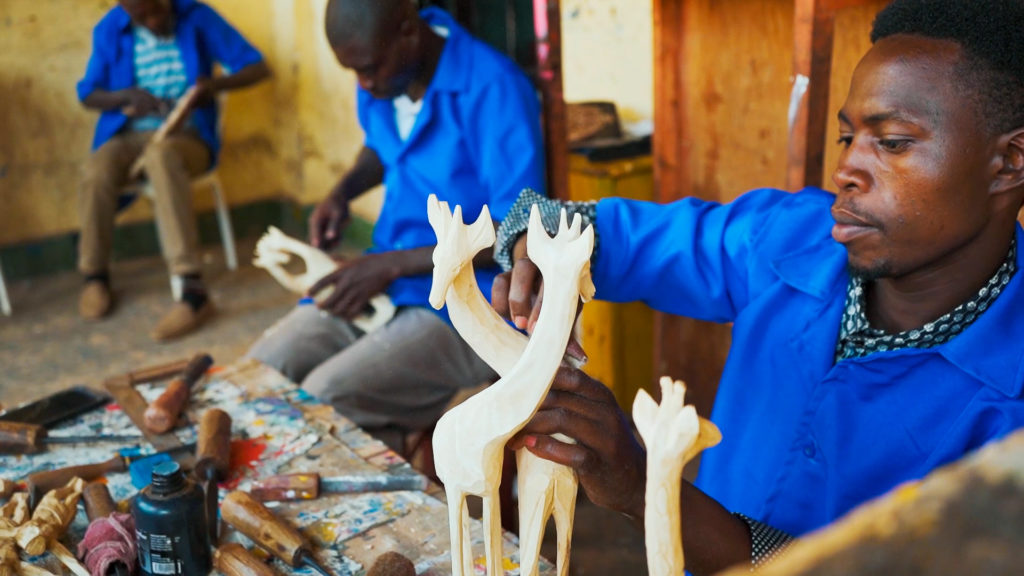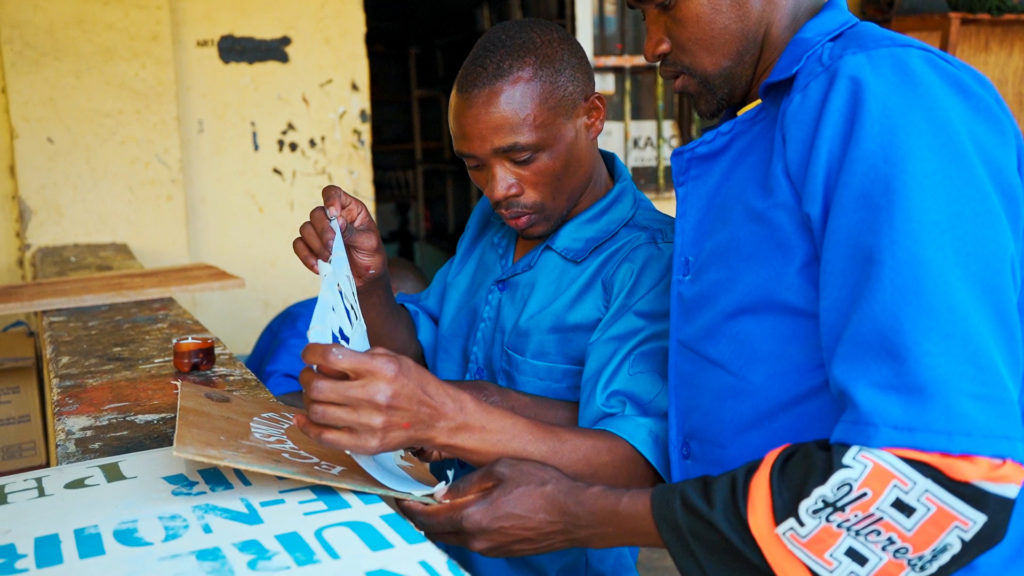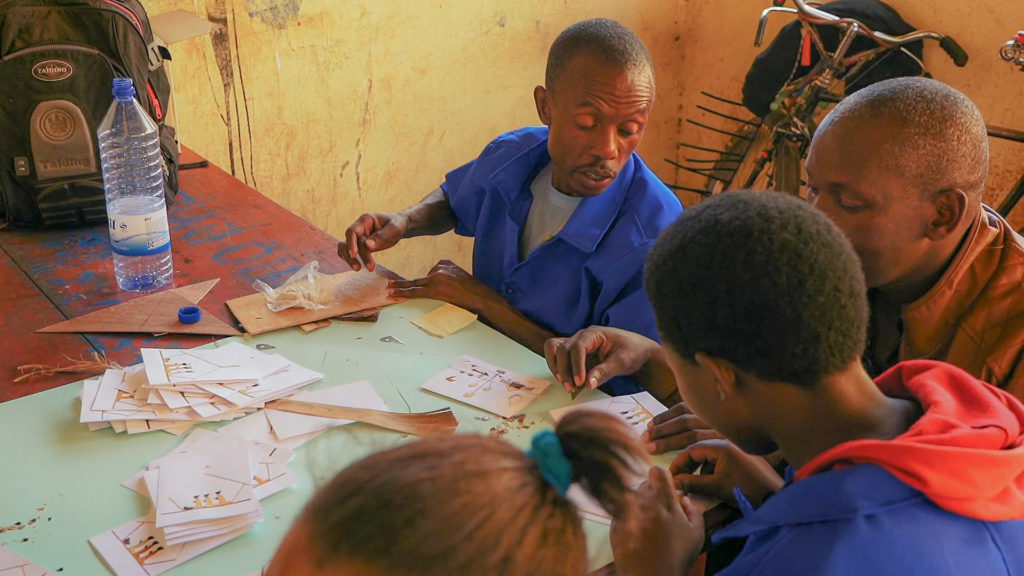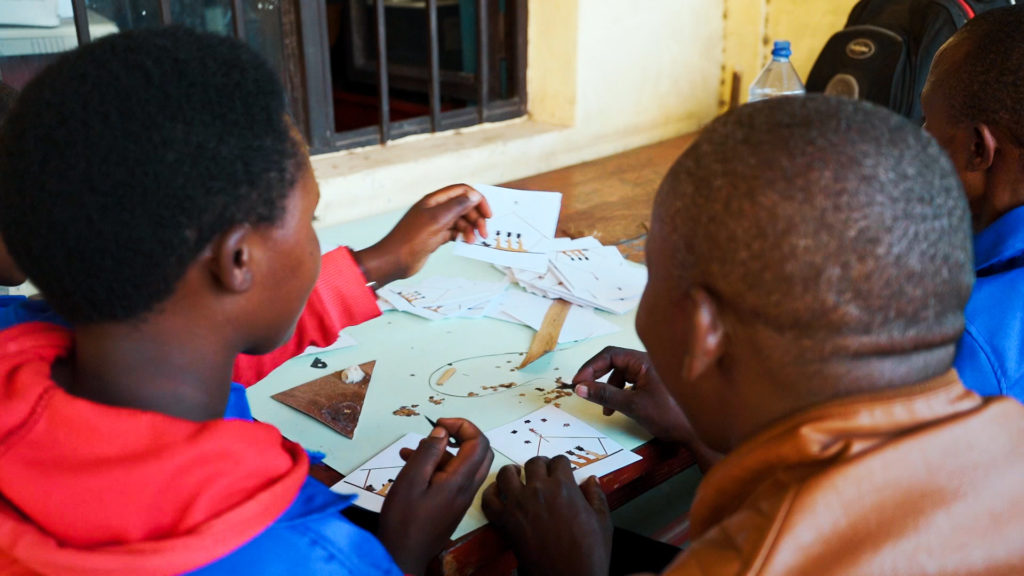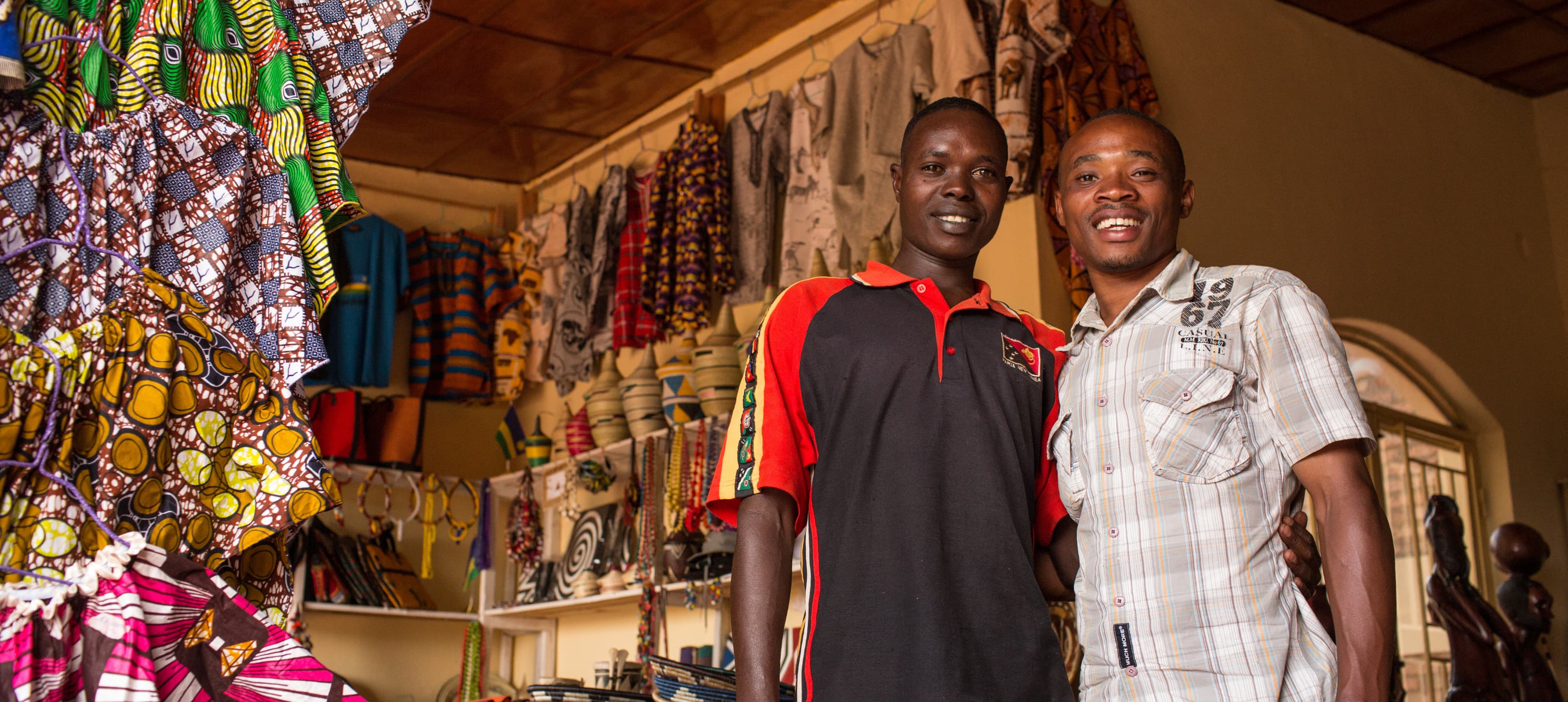“Before I joined Zoe Empowers, I use to complain to God, asking why he made me suffer.” said Samuel. “Now, I see what I would have lost if I would have given up. I would have missed so many things. I would not be here to help others.”
‒ Samuel, 2018 graduate of Zoe Empowers Rwanda
Jiggers, a debilitating medical condition caused by the chigoe flea burrowing into the skin, lined the fingers and toes of Samuel*. The pain was excruciating. Walking was practically unbearable, but as the eldest child to two deceased parents, he knew he had to earn money to support his two younger siblings, so he sought out daily cash labor jobs in his small Rwandan village.
“I was a bad example among youth,” said Samuel* about his life before Zoe Empowers. “I stole things. I was in prison. People saw me as the biggest problem in the community.”
In the same village, unbeknown to Samuel, was another young orphan named Chance*. Although Chance also had two younger siblings, he had become separated from them since living on the streets. To stay alive, Chance got a job cleaning at a local butcher shop. He was paid in left-over scraps and intestines from the butchered pigs. Without access to other food, this became his only option.
Consuming pig waste caused Chance to contract many diseases and parasites. When community members learned this, they called him a “wild animal” when he passed through the streets. His feelings of anger and loneliness led him to use drugs to cope. Most nights he slept in the bushes outside city limits, in hopes of not being noticed.
“My name was wild animal.”
The paths of Samuel and Chance crossed when both joined the Zoe Empowers Rwanda program in 2015. Until then, they were unaware so many orphans in their community suffered from similar challenges: the inability to afford daily meals, a safe shelter, healthcare services, clean clothes or attend school, to name a few. There was more than 60 children in their empowerment group who could relate to one another. Immediately, Samuel and Chance felt accepted and understood.
A formality of the empowerment group model is that the children must select one of their peers to be the group chairman. The group selected Samuel to be the chairman, an appointment he says gave him “self-esteem and dignity,” as he previously never considered himself a leader.
“Finding a place to belong gave us dignity.”
Within the first six months of the empowerment program, the two young men received woodworking training. Chance used his training to get a job in construction, while Samuel began making commercial signs for members of his empowerment group and community members. Before long, both young men were earning a respectable profit.
A steady income allowed Samuel and Chance to afford a variety of nutritious food, both through their personal plots of land, which they had received instruction on how to cultivate, and by purchasing items at the community market. Regular meals made them feel stronger and provided more energy to work and socialize. The community took notice. In a matter of months, two men whom they use to name call and ridicule, were not only contributing to the economy through woodworking, but they also shopped at the market and wore clean clothes, a public sign of success.
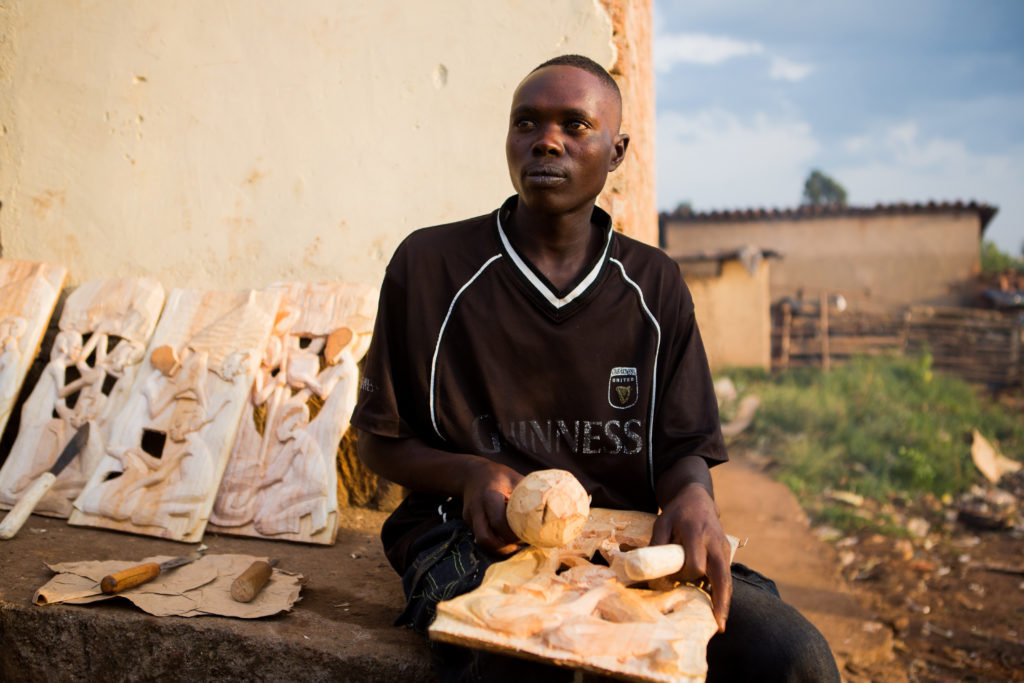
A Zoe Empowers facilitator helped Chance get access to proper medication to cure him of his intestinal issues. Healthy and in good spirits, Zoe Empowers’ resources also helped Chance reunite with his two younger siblings, whom he was able to re-enroll in school thanks to his construction work profits. Samuel and his siblings received treatment for their jiggers-laden skin, making everyday movement significantly easier. One year into the empowerment program, the two friends, along with their group, began to forget about the darkness of their past lives and look forward to all that was yet to come.
As their woodworking businesses grew, community members began to ask them for help more frequently. Leveraging their business lessons on market analysis, Chance and Samuel saw a need for a more robust woodworking shop in their community. By the time of graduation, the two men joined forces to open a souvenir shop and training center where they sell hand-carved wooden items, signs and other local goods as well as provide mentorship and trade skills training to other young orphans.
Currently, they employ eight people, four boys and four girls, in the shop and have trained countless others in the community. The boys train in woodworking, while the girls train in sewing and basket weaving. Chance and Samuel are passionate about passing their skills to as many people as possible. Samuel has traveled as far as Uganda to help one of his trainees open his own shop. He likes how his talent can attach to many lives and empower others.
“Our talent is now empowering others.”
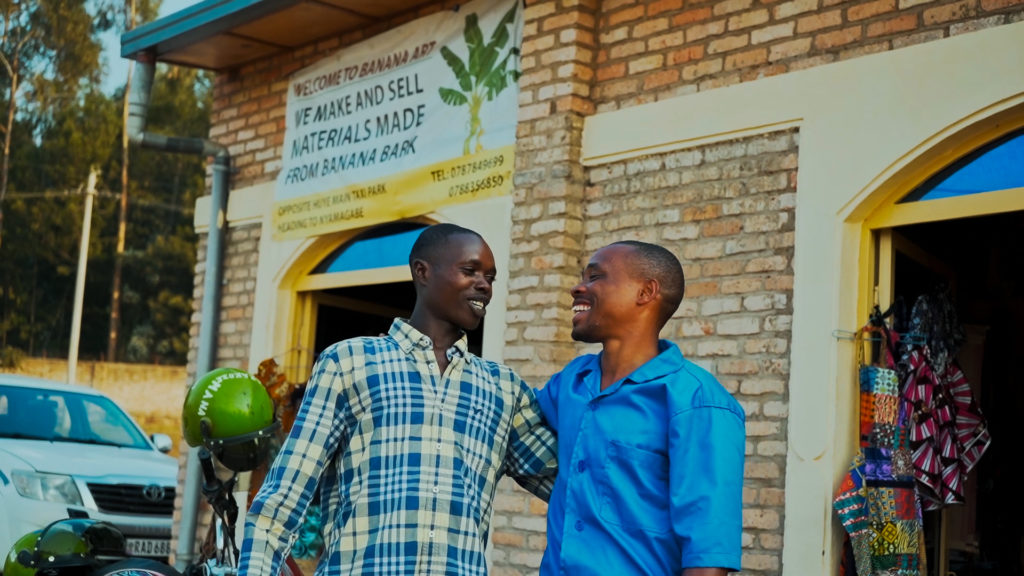
“Before Zoe, I use to complain to God, asking why he made me suffer.” said Samuel. “Now, I see what I would have lost if I would have given up. I would have missed so many things. I would not be here to help others.”
Chance attributes his empowerment group to helping him feel “human again”. He says that before his time with Zoe Empowers he could not be touched, but, today, hugs, dancing and affection are a natural part of his day. He considers the Zoe Empowers’ partners his parents, and he thanks God for connecting him with the program.
*Names have been changed based on the sensitive content in this story.
380 million children living in extreme poverty will rely on charity forever.
$9 a month per child can change that.
A monthly gift of $39 over 3 years empowers five orphans out of poverty. How many children like Chance and Samuel can you give lasting sustainable change?
